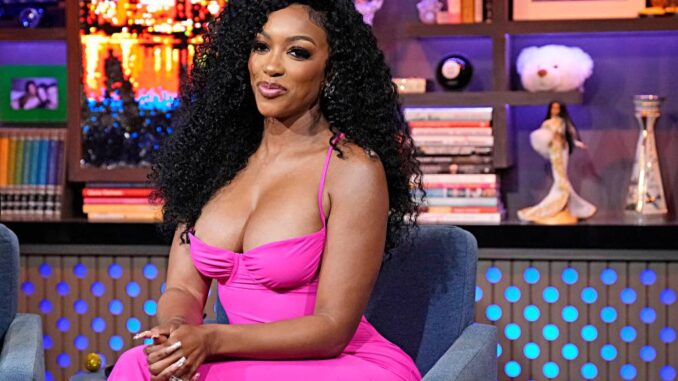
The stage is set under the glittering chandeliers and amidst the clinking of champagne flutes, a familiar tableau in the opulent, often volatile, world of reality television. We are drawn to these narratives like moths to a flame, particularly when the delicate dance of social interaction morphs into a full-blown combat sport. Few dynamics illustrate this transformation as vividly as "Porsha Versus the Group," a recurring saga that serves as a visceral case study for when drama, an essential ingredient for entertainment, crosses an unforgivable line, leaving behind not just bruised egos but deeply fractured relationships and often, public contempt.
Initially, "drama" on such platforms is a calculated performance, a strategic chess match of wit, shade, and subtle digs. It’s the art of the well-placed eye-roll, the perfectly timed confessional, the thinly veiled insult delivered with a smile. Porsha, often a central figure in these conflicts, possessed a unique capacity to both deliver and receive this initial volley. Her emotional transparency and sometimes naive reactions made her a compelling protagonist, capable of eliciting both empathy and exasperation. The group, a fluid entity of shifting alliances and individual agendas, would often prod, provoke, and pile on, each member vying for their own moment in the spotlight. In this phase, the tension is a thrill, a testament to the complex tapestry of human interaction under pressure, designed to keep viewers glued to their screens. The line, though perpetually blurry, still exists; it implies a mutual understanding that while the words may sting, they are part of a game, a narrative crafted for consumption.
The insidious nature of reality television, however, lies in its tendency to amplify and escalate. What begins as playful banter can quickly spiral into something far more caustic when boundaries are neglected and personal vulnerabilities are exploited. The shift occurs subtly at first: a comment about a past mistake becomes a full-blown character assassination, a disagreement over an event mutates into accusations of deep-seated malice. For Porsha, this often meant her impulsive nature was weaponized against her, her past struggles with trust or anger management becoming fodder for the group’s collective assault. The line begins to waver when the intent shifts from "winning an argument" to "destroying a person's reputation or sense of self-worth." The air thickens with genuine animosity, the performative smiles tighten into grimaces, and the verbal jabs are laced with venom.
But the true crossing of the line is often marked by an eruption, a seismic shift that leaves an indelible scar. This is when the drama transcends the realm of verbal sparring and enters the dangerous territory of physical altercation, deeply personal attacks on family or children, or the insidious spread of outright defamatory rumors. For Porsha, pivotal moments have included physical altercations that shocked viewers and cast members alike, transforming a war of words into a visceral expression of uncontrolled rage. The sight of hands being laid on another, or the terrifying escalation from shouting to outright brawling, shatters the illusion of entertainment. Suddenly, the fun is gone, replaced by a visceral discomfort, a collective intake of breath from an audience that realizes they are witnessing genuine aggression, not just manufactured conflict.
Equally egregious is the weaponization of personal lives and the blatant disregard for fundamental human decency. When past traumas are dredged up and distorted, when false accusations are manufactured and disseminated, or when the safety and reputation of non-consenting family members are dragged into the fray, the line is not just crossed; it is obliterated. The group, in their collective desire to "expose" or "take down" Porsha, sometimes resorted to tactics that felt less like drama and more like a targeted psychological assault. The consequence is not just damaged friendships, but potentially damaged careers, public shaming, and deep emotional wounds that linger long after the cameras cease rolling. The "drama" ceases to be about entertainment and becomes an uncomfortable exposé of humanity's darker impulses, leaving a bitter aftertaste.
In conclusion, the saga of Porsha Versus the Group serves as a stark, often uncomfortable, mirror to our own fascination with conflict. It illustrates that while drama, in its playful, witty form, can be compelling entertainment, there is a precise and perilous point where it ceases to be a game and devolves into something far more damaging. This line is crossed when the intent shifts from performance to personal destruction, when verbal sparring becomes physical violence, or when the pursuit of a storyline sacrifices the basic tenets of respect and human dignity. The aftermath is rarely satisfying; instead of resolution, there are often only ruins—broken trust, public scrutiny, and the lingering question of whether any amount of "good television" is worth the cost of humanity itself.